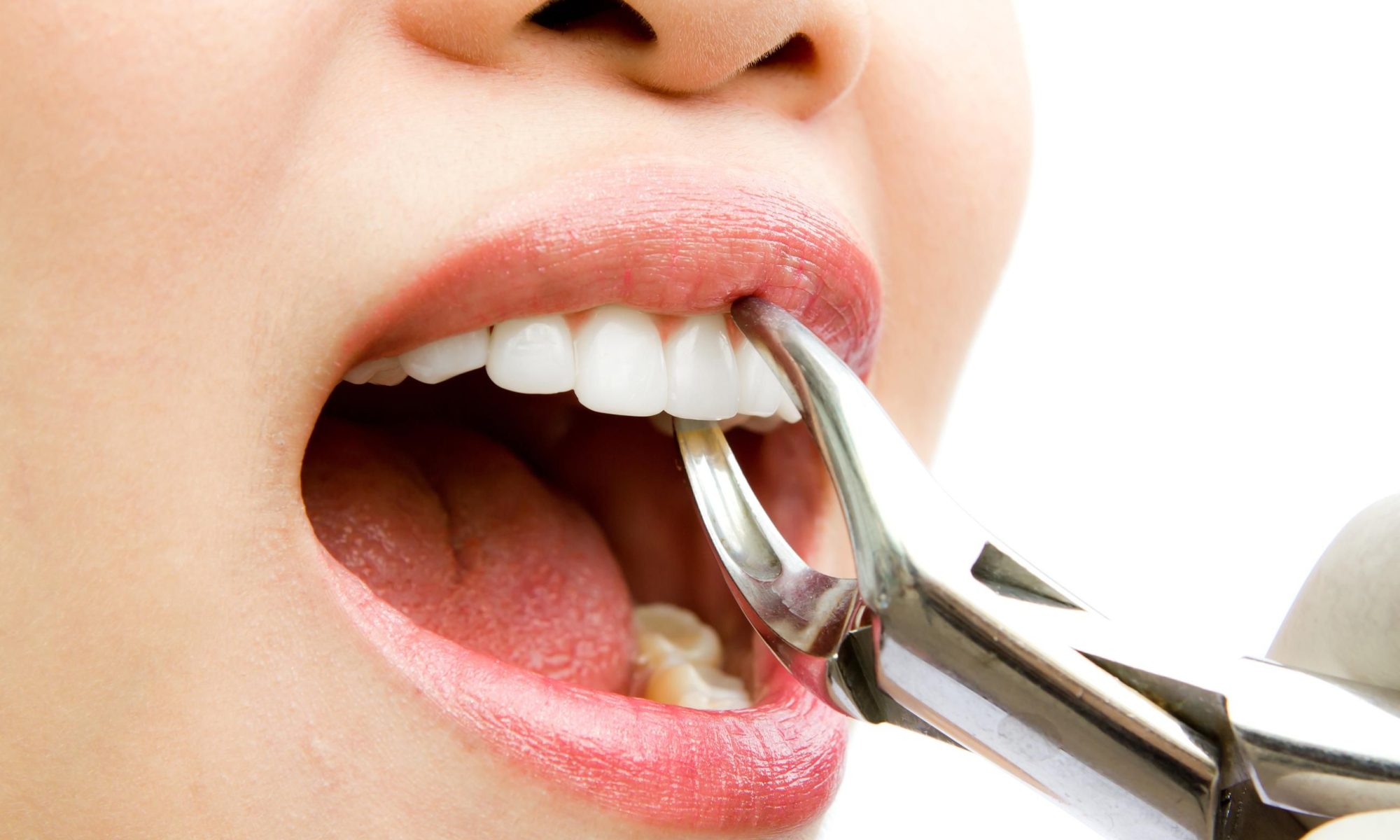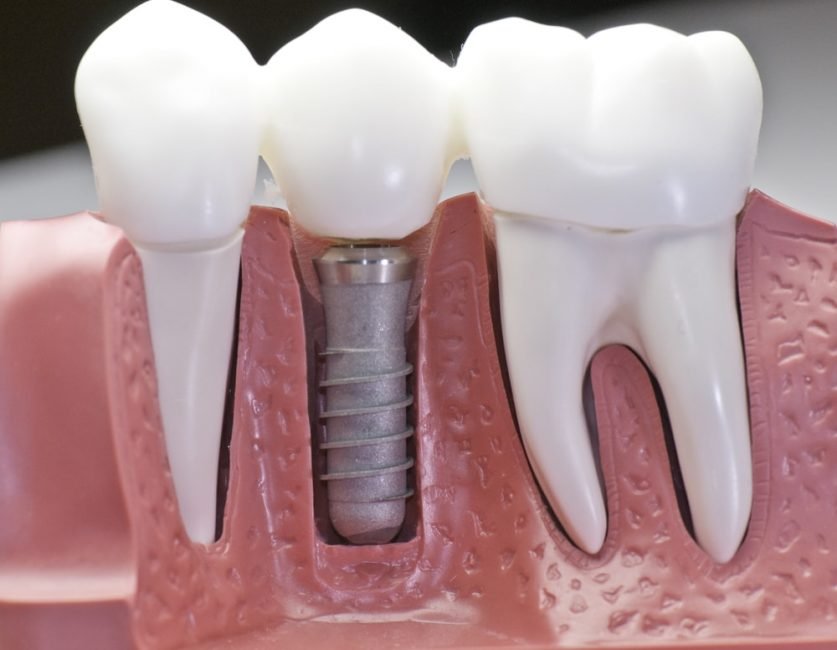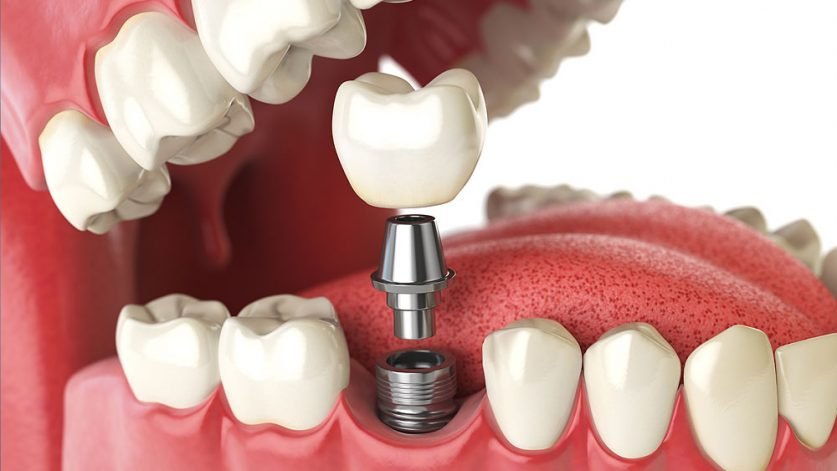Tag: Dental Implants Houston
Why Do Dentists Employ Dental Implants?
Dental implants support restorations for missing teeth, acting as replacement tooth roots and reducing or halting jaw bone erosion. While considered a prosthetic dental procedure, implantation is also considered an aesthetic dental procedure. People with missing teeth could have trouble smiling or speaking. Additionally, the irregularities in biting caused by tooth loss can severely impact eating patterns, leading to other health problems like malnutrition. Affordable Dental Implants replace missing tooth roots, giving clients the strength and stability required to consume all the foods they love without having to strain to chew. They also enhance facial support and stop bone deterioration by preserving and promoting jaw bone. What happens before the dental implant procedure? Before considering a dental implantation procedure, Dental Implant Specialist Near Me suggests treating or managing any underlying oral health issue. Some common dental health issues like tooth decay and periodontal disease can make dental implant treatment less effective. You better quit or stop smoking cigarettes, as smokers risk treatment failure more than non-smokers. Smoking harmfully affects osseointegration, a process by which dental implants hold onto the jawbone. What is the procedure for implant placement? After drilling the initial pilot hole into the right jaw site, it is gradually expanded to allow the insertion of the implant screw. Once the implant is positioned, the gum tissue around it is fastened over it. A cover screw serves as protection while osseointegration takes place. Your Dental Implants Houston dentist will reveal the implant and insert an abutment following up to six months of recovery. The abutment could occasionally be fastened during the initial Dental Implant Procedure. Your dentist will construct a temporary or final crown when the abutment is set up. Dentists for Dental Implants Near Me may occasionally create the final crown the same day the abutment is inserted. If necessary, the temporary crown acts as a template around which the gum develops and takes on a natural shape. The procedure is over when the temporary crown is swapped out for a permanent one. How to recover from dental implant surgery? One of the factors affecting dental implant healing is the several procedures required to complete your treatment. But it is generally agreed that maintaining strict oral hygiene habits after implant placement helps to ensure the best possible integration with bone structure. Treatment failure may occur from neglecting to brush and floss, which can also happen if the implant and its surrounds need to be carefully cleaned. After implant procedures, you should avoid smoking because it is also associated with higher failure rates. It will be essential to clean any temporary restorations that were attached to the implant as you would your natural teeth to encourage the best healing and fusing possible. You won't feel much discomfort after the initial surgical procedure. Still, you can expect some swelling on your face and gums, as well as bleeding and bruising of the implant site. If you have discomfort or pain after the implantation procedure, your dental expert may advise you to use prescription medicines. Following surgery, your diet should only include soft meals for five to seven days. Conclusion The above-provided details and information will help you learn some beneficial things regarding dental implants. For a deeper dive into dental implants, please visit emergencydentistinhouston.com.
Why Do Dental Experts Perform Dental Implant Surgery?
In dental implant surgery, tooth roots are replaced with metal posts that resemble screws and are damaged, or replace a missing tooth with prosthetic teeth that resemble natural teeth in appearance and function. According to a dentist open on weekends near me, when insufficient natural tooth roots allow for the construction of dentures or bridgework tooth replacements, dental implant surgery can provide a welcome alternative. According to a walk-in dentist near me, the implant used and your jawbone's health will determine how they perform the procedure. It could involve multiple methods in dental implant surgery. The main benefit of dental implants is a reliable support for your new teeth and ensuring that the bone around the implant heals securely. The jaw bone might take several months to recover since it needs time. Are there any risks associated with it? Dental implant surgery poses some complications and risks like any other dental surgical procedure. Although problems are rare, they are usually minor and manageable. The risks of dental implants near me may include Damage or injuries surrounding the bones and structures, such as teeth or blood vessels Infection at the implant site Damage to the nerves that control your natural teeth, gums, lips, and chin may result in pain, numbness, or tingling. When dental implants in the upper jaw intrude into a sinus cavity, it might cause sinus issues. How do dentists evaluate and prepare for the dental implant procedure? You must undergo a complete evaluation to prepare for the operation because dental implants Houston need one or more surgical procedures. It includes a: Detailed dental examination. Houston dentist may also create dental X-rays, 3D photographs, and your teeth and jaw models. Review your medical background. You should discuss any medical or health issues you have, along with any prescription, OTC, and dietary supplement use, with your doctor. Also, the 24-hour emergency dentist near me might advise taking antibiotics before surgery to help avoid infection if you have specific cardiac issues or orthopedic implants. Treatment plan An affordable dentist near me will customize the treatment plan according to your specific dental requirements and condition. The treatment plan also includes factors like the number of teeth they need to replace and the condition of the remaining teeth and jaw bone. Does the dental implant procedure require anesthesia? Local anesthesia, sedation, or general anesthesia are anesthetic alternatives to manage pain during surgery. The ideal choice for you should be discussed with your dentist office near me with your dentist specialist. Depending on the anesthesia you'll receive, your dental care team will advise you on what food to consume before the surgery. Plan to have a driver or someone drive you home following surgery if you're under sedation or general anesthesia and anticipate needing to rest the rest of the day. What should you expect? They often conduct dental implant surgery as a series of outpatient treatments with recovery time. There are several steps involved in installing a dental implant, including: Removal of the damaged tooth. Jawbone grafting, if necessary. Dental implant placement Abutment placement Bone healing and growth Artificial teeth placement Conclusion We hope the above-provided information will help you learn some beneficial and informative details regarding dental implant procedures. For further valuable details, please visit urbndental.com.
What Are The Types Of Dental Implants?
Dental Implants Houston is made up of pure titanium material. They are pretty small and well fitted into your bone and have the same functionality as natural teeth. Dental implants can replace tooth loss or knock and chipped teeth. Types of Dental Implants There are three types of dental implants that you can select: Endosteal: These dental implants are one of the safest and most commonly used. They are suitable for all patients but require a healthy mouth and jawbone. Endosteal are placeholder and shaped like screws. A dentist puts this endosteal into your jaw by drilling your teeth and placing pseudo tooth on it. Once the treatment ends, it takes a little time to heal but requires time to fuse. And create strong and healthy teeth. But if you don't like this procedure of placing false teeth on your mouth. Then you might go for the second most common treatment. Subperiosteal Implants: Subperiosteal Implants are a treatment in which, instead of fixing the screw inside the jaw bone. The procedure allows the dentist to rest the implant on top of the bone inside the gums. During the procedure, the dentists place a metal frame under the gum with a post attached to it, suggesting healing time for the gums, And then they place artificial teeth. Dentists use this treatment when the patient doesn't have enough jawbone for an implant, or the patient doesn't want to go with the dilling and screw process. But if this doesn't apply to you, maybe this subsequent treatment is for you. Zygomatic Implants: This is the least common type of treatment available for you, and it is the most extensive and complex procedure. If you don't have enough gum bone, the dentist suggests this dental implant. The dentist places this type of implant into the cheekbone instead of the jawbone. Other Techniques Bone Augmentation The dentist will re-correct your jawbone if, in case, it cannot supports dental implants. It is possible to use a bone additive to fortify the jawbone. Sinus Lift This procedure involved adding an extra supportive bone to the sinus if the bone doesn't have enough support for the implant. Ridge Expansion Suppose the width of your jaw is not enough for the dental implant. In this case, your dentist will create the top of your jaw by grafting material. Are dental implants affordable? Conspicuously, one of the most popular questions about this procedure is "How much does a dental implant cost?" The cost for a removable full mouth dental implant is the least expensive compared to other treatments. The cost of a lone tooth dental implant may be Affordable Dental Implants compared to the other dental implant treatments. This includes a minor surgery for its placement, all the components and material, and the implant crown itself. For any such queries visit Dental Implants Near Me.
Popular Categories
- Blog (13)
- Dental (138)
- Diet And Nutrition (15)
- Fitness (33)
- Health (195)
- Lifestyle (25)
- Mind & Body (15)
- Weight Loss (16)









